Vladimir Putin is trying to ban people from sharing these 11 images of him
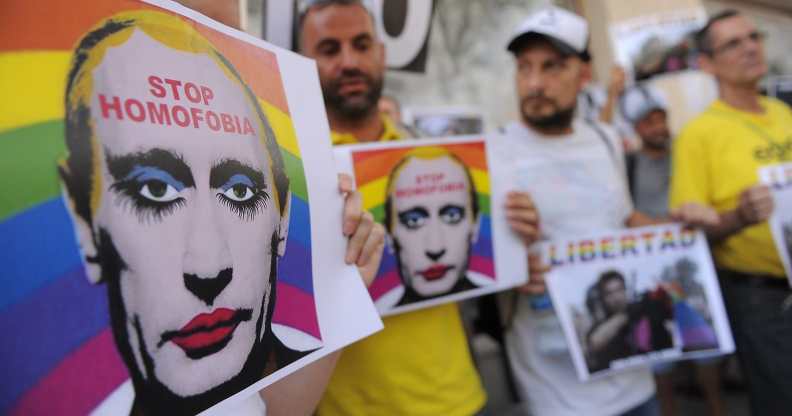
Russian president Vladimir Putin is very angry about an image of him being used.
The Kremlin leader has got very wound up about LGBT rights activists in the country using an image of him in makeup on their placards.
They’re so angry that the Russian government has added the picture to the country’s registry of prohibited “extremist” content.
The much-distributed picture has circulated widely on the internet and at LGBT rights protests, seeking to resist the country’s ‘gay propaganda’ law by lampooning Putin’s macho image.
This week, Russia’s Justice Ministry quietly designated the image as ‘extremist’ material, employing the government’s supposed anti-terrorism powers to ban it from being circulated or displayed in Russia.
But it hasn’t seemed to stop the internet.
There’s no shortage of images of a painted Putin from protests.
This is our guide to images of Putin that Putin does not want you to see, or share, or maybe reprint at your on your placards.
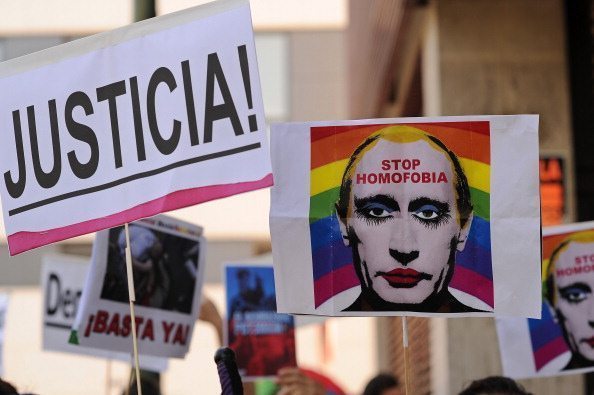
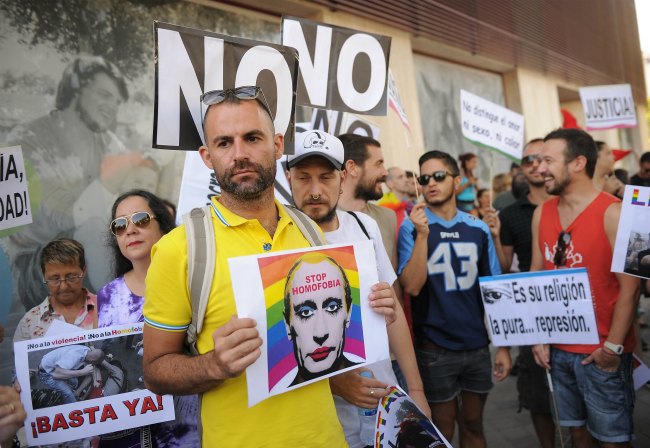
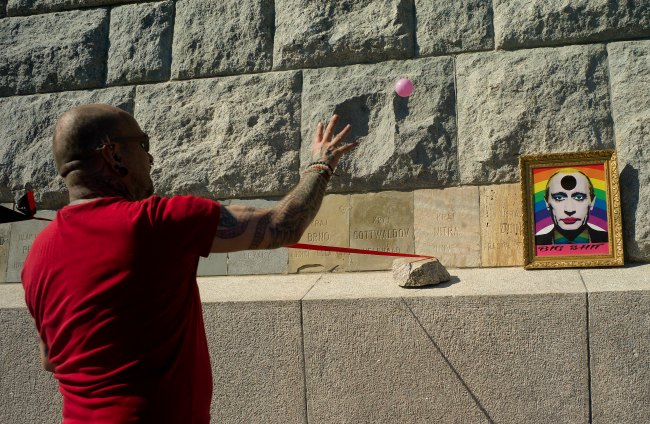
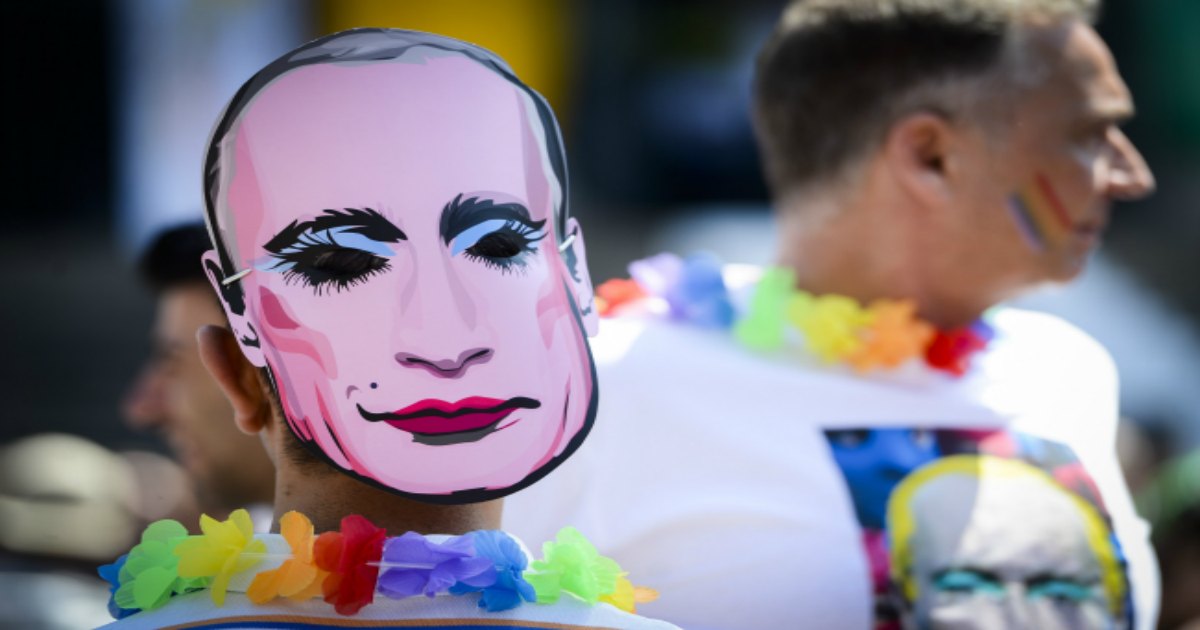
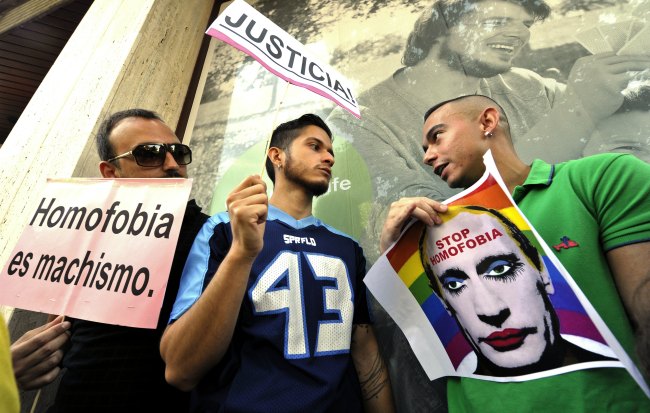
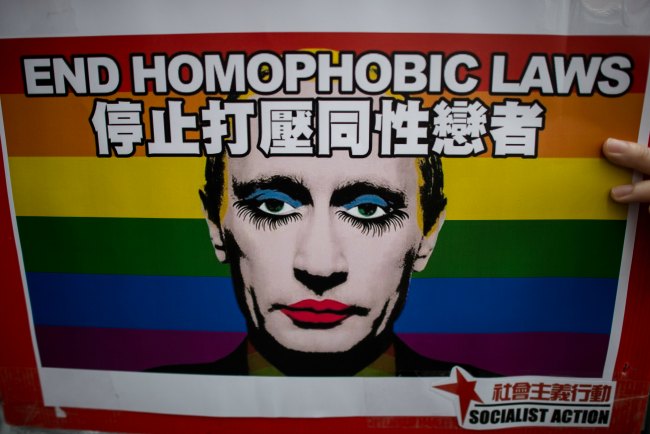
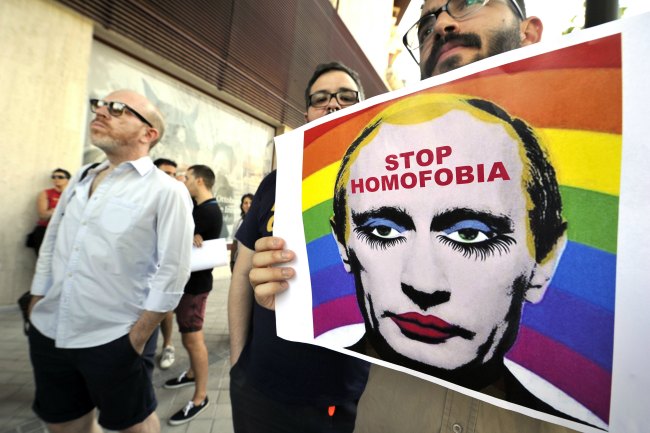
You can’t make it up. Unless it’s Putin’s face, which this image proves you can.
https://twitter.com/NickTScully/status/849548729422053377
It is, as this journalist pointed out, hard to be sure exactly which image of Putin with makeup on is offensive.
He has offered a selection of offenders, just to be sure.
No one is quite sure which picture of Putin in make-up is the one that is banned but it's probably one of these: #gayputin pic.twitter.com/qBhS4pyePK
— Tom Coates (@tomcoates) April 5, 2017
It is probably one of those, we imagine, but it’s hard to tell when the government banned quite so many images.
The index of banned extremist materials contains 4,071 items, which its claimed fall under their ‘anti-extremism’ powers.
According to the Moscow Times, the decision to ban the image reflects a May 2016 court ruling, when a man was charged with “hate speech” offences after posting the picture of Putin in makeup on Russian social network Vkontakte.
The Justice Ministry listing describes the image as a “poster depicting a man resembling the president of the Russian Federation Vladimir Putin, with makeup on his face – painted eyelashes and lips [intended to] serve as a hint at the alleged nonstandard sexual orientation of the President.”
The Russian government recently warned citizens to refrain from homophobic attacks while on holiday in other countries in an extraordinary set of advice for Russian travellers.
The Foreign Ministery guidelines, which are aimed at preventing Russian tourists from causing offence, warns them that they may see “people of non-traditional sexual orientations” while on holiday in Europe and the Americas.
Homophobia has surged in Russia since the passage of 2013’s so-called ‘gay propaganda’ law, which has been exploited by anti-LGBT forces in law enforcement and government in order to clamp down on the LGBT community.
Some reports have suggested that vigilante attacks and hate crimes against LGBT people are on the rise in the country.
The guidance for visiting France warns that in some countries it is advisable “not to speak or act abusively to members of the LGBT community”.
Advice for Russians heading to Spain warns: “Public expression of negative attitudes towards persons with different sexual orientation are not met with understanding in others, so you should refrain from it.”
The entry for Canada includes the longest warning.
The travel advice warns that “there is a serious fixation on sexual equality” in Canada, “which has long legalised same-sex marriage”.
It cautions Russians against telling homophobic jokes, noting that “in addition to public condemnation, in urban areas with many sexual minorities (particularly Vancouver, Toronto and Montreal) there is a risk of punishment in the form of fines or being charged with ‘hate crimes’.”
Russia last month rated the new Power Rangers reboot for aged 18 and over over a lesbian storyline.

